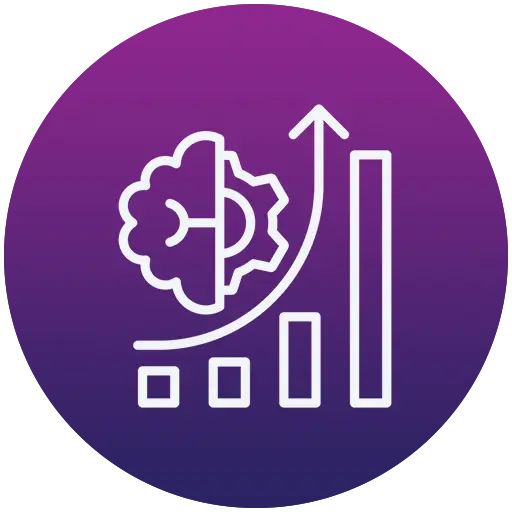
Business Intelligence Best Practices: A Roadmap to Success in Data-Driven Decision-Making
25 May 2024Digital Transformation in the Era of AI: Redefining the Game
Key Facts:
-
Global AI market expected to reach $1.5 trillion by 2028 (Grand View Research).
-
85% of CEOs believe AI will significantly change their organization in the next 3 years (PwC).
-
58% of companies have already undertaken some form of AI adoption (McKinsey).
-
Top AI applications include customer service, process automation, data analytics, and product development.
-
Truedew’s approach to personalize the customer experience using AI, for a client in the retail industry, led to 25% increase in online conversion rates and 15% reduction in operational costs.
Introduction:
Healthcare Transformed: In the realm of healthcare, AI is wielding its diagnostic prowess, aiding in early disease detection and revolutionizing treatment plans. DeepMind's AI system, for instance, analyzes retinal scans with human-level accuracy, detecting diabetic retinopathy early, potentially saving thousands of lives (McKinsey, 2023). Hospitals like Mayo Clinic utilize AI to predict patient readmission risks, enabling preventative interventions and reducing costs by 20% (BCG, 2023). At Truedew we are working with a large Government hospital and Indian Statistical Institute on early detection of cancer and other diseases.
Retail Revolutionized: The aisles of brick-and-mortar stores are no longer immune to the AI makeover. Amazon Go eliminates cashier queues by leveraging computer vision and AI to track customer interactions and automatically charge for purchases, creating a seamless and frictionless shopping experience. Companies like Target employ AI to optimize inventory management, predicting customer demand with remarkable accuracy and reducing out-of-stocks by 30% (McKinsey, 2023). Our consultants at Truedew have helped a retail client optimize the store checkout time to improve customer satisfaction by 25%.
Financial Services Forged Anew: From predicting market trends to optimizing loan approvals, AI is reshaping the financial landscape. Morgan Stanley utilizes AI to analyze investment portfolios and suggest personalized strategies, generating a 15% increase in client returns (McKinsey, 2023). Fintech startups like Klarna employ AI-powered fraud detection systems, reducing fraudulent transactions by 50% while streamlining the online payment process (BCG, 2023). We at Truedew are working with consultants in the micro finance domain to develop advanced AI model for Risk Prediction in Trueview – Our own AI-Digital Platform Acclerator.
Implications: Unveiling the Opportunities and Challenges
Opportunities Unleashed:
- Enhanced Productivity and Efficiency: AI-powered automation can liberate human resources from repetitive tasks, freeing them to focus on higher-level endeavors like strategic planning, innovation, and creative problem-solving. McKinsey Global Institute estimates that AI could automate up to 800 million jobs globally by 2030, freeing up human potential for higher-value activities.
- Data-Driven Decision Making: AI algorithms can analyze vast amounts of data, uncovering hidden patterns and generating insights that inform better decision-making across all levels of the organization. BCG research suggests that data-driven companies experience 5% higher profitability and 6% higher revenue growth compared to their less data-centric counterparts.
- Hyper-Personalized Customer Experiences: AI can personalize offerings and interactions, fostering customer engagement and loyalty through tailored recommendations, dynamic pricing models, and anticipatory service. McKinsey reports that personalization efforts driven by AI can boost sales by up to 30% and increase customer satisfaction by 20%.
- New Business Models and Innovation: AI opens doors to entirely new business models and product offerings, creating space for disruptive innovation and competitive advantage. From AI-powered chatbots revolutionizing customer service to intelligent robots collaborating in surgery, the possibilities are virtually limitless.
Challenges to Conquer:
- Ethical Considerations: Issues of bias, fairness, and transparency inherent in AI models necessitate careful implementation and governance to mitigate potential harm. Ethical frameworks and regulations are crucial to ensure AI is used responsibly and inclusively.
- Talent and Skills Gap: Effectively utilizing AI requires significant upskilling and reskilling of workforces. According to the World Economic Forum, 50% of current jobs will be replaced by automation within the next five years, demanding proactive investment in human capital development.
- Technological Infrastructure: Robust data infrastructure and computing power are critical for successful AI integration. BCG states that companies spend, on average, $5 million per AI initiative, highlighting the significant capital investment required for digital maturity and AI readiness.
- Human-AI Collaboration: Navigating the relationship between humans and AI is crucial. Over-reliance on automation can lead to job displacement and skill erosion. The focus should be on fostering partnerships where humans leverage AI's capabilities while maintaining oversight and ethical direction.
Strategic Considerations:
- Identify clear goals and use cases for AI implementation. Don't simply chase the latest shiny technology; choose applications aligned with your core strategies and address specific business needs.
- Prioritize data governance and ethical AI development. Ensure transparency, fairness, and accountability in your AI models to mitigate potential harm and build trust with customers and employees.
- Invest in upskilling and reskilling initiatives. Prepare your workforce for the changing landscape by equipping them with the skills needed to work effectively alongside AI and adapt to new roles.
- Embrace a culture of continuous learning and experimentation. The AI landscape is evolving rapidly, so staying ahead of the curve requires an agile mindset and willingness to adapt your strategies based on new learnings and emerging technologies.
- Focus on human-AI collaboration. Leverage the unique strengths of both humans and AI; humans provide strategic direction and ethical oversight, while AI offers unparalleled data analysis and automation capabilities.
Key Takeaways:
- AI is not a silver bullet: It's a powerful tool, but needs to be integrated strategically with clear goals and defined use cases.
- Data is the fuel: High-quality data and robust governance are essential for successful AI implementations.
- Culture of collaboration: Foster cross-functional collaboration between tech teams, business units, and data scientists to leverage diverse expertise.
- Continuous learning: Embrace an agile mindset and adapt your strategies as AI technology evolves.
- Human-AI partnership: Focus on the symbiotic relationship between humans and AI, leveraging each other's strengths for optimal results.
The Road Ahead:
- More sophisticated AI models: Capable of deeper learning, improved reasoning, and even creative tasks.
- Democratization of AI: Making AI tools and resources more accessible to smaller businesses and startups.
- Hyper-personalization: Tailor-made experiences extending beyond products and services, encompassing individual preferences and aspirations.
- Ethical frameworks and regulations: Robust governance structures to ensure responsible and transparent AI development and deployment.









